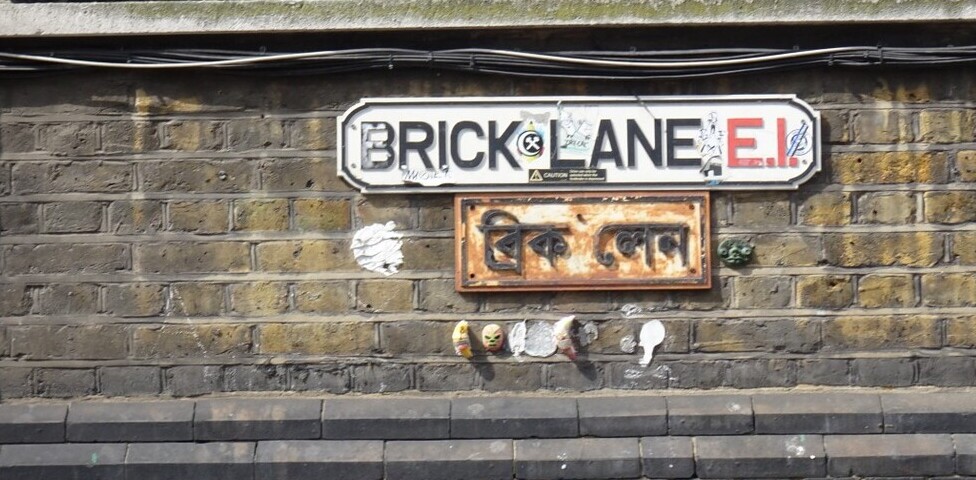Bangladesh has a good track record of fighting natural disasters with community involvement. Whether its floods or cyclones, Bangladesh citizens have consistently organised themselves to provide support to some of the most vulnerable in society. But how are they coping with the coronavirus pandemic? Here Nurul Huda Sakib and Mohammad Sajedur Rahman (Jahangirnagar University, Dhaka) explain how communities are facing up to the challenges lockdown has imposed.
The COVID-19 pandemic poses severe challenges to Bangladesh, a nation set to be a middle-income country prior to the outbreak. Bangladesh has successfully maintained a GDP growth rate of above 6 per cent over the last decade, as well as maintaining a focus on its citizen’s human development. The pandemic, however, has halted normal economic activities and poses a severe threat to the public health capacity of the nation. According to the Worldometer database on 17 May, the number of confirmed coronavirus cases in Bangladesh was 23,870 with 349 fatalities. Many predict that this number will rise over the next few weeks.
Bangladesh’s very vulnerable healthcare system has the job of fighting the spread of this novel coronavirus. Currently, in the country, there is a shortage of doctors, nurses, hospitals and respiratory and protective equipment. The United Nations has warned that if no preventative social and health measures were taken in Bangladesh, a high number of causalities would likely occur. Moreover, with 21.8 per cent of the population living below the poverty line, it is feared that a humanitarian crisis may occur as a result of the shutdown of the economy. Ready-Made Garments (RMG), the key source of income for the nation, might lose orders, and the informal-based economy might then be profoundly affected, especially for people from the vulnerable sector who earn daily rates as rickshaw pullers, garments workers and street hawkers.
The country, however, has a good track record of fighting disasters with community involvement. Successful community initiatives against natural disasters, such as cyclones and floods, have encouraged people to engage with one another; indeed civic participation is one of the strengths of the nation. Community activism, which can be categorised into three different types, has been seen as making a substantial contribution in the fight of the pandemic across the country.
Spontaneous, individual help
Firstly, there have been many examples of individuals helping those most in need in Bangladesh. Many individuals offering help are from different segments of society, and from all across Bangladesh, and are involved with directly distributing masks, Personal Protective Equipment (PPE) to healthcare officials, buying food for those in need of it, and raising awareness of the virus. Some doctors at the local level have also started to provide free services to coronavirus patients over the phone.
One good example of this is an Anti-Corruption Commission official from Bogra named Wahid Manjoar Sohag. A Deputy Assistant Director of the regional Bogra office, he stepped forward to help feed two hundred and fifty people living on the streets a day. There are many people like him who have come forward spontaneously and helped people overcome the food crisis. These individual efforts are scattered, but the contribution shows much promise and is making a significant contribution to the crisis.
Volunteer organisations
Secondly, volunteer organizations, such as philanthropist foundations, associations, youth group initiatives and local clubs, have donated food and other supplies, as well as providing an avenue for more structured citizens participation. Some of the national organisations, such as the Bidyanondo Foundation, Manush Manuser Jonyo Foundation, Pay It Forward Bangladesh (Let us Spread Kindness), Bangladesh Youth Initiatives, and many more, have distributed free food, money, PPE, masks and fronted coronavirus awareness campaigns.
For example, the Bidyanondo Foundation, which is known for its program of providing food to those in need for 1 taka (less than one cent), came forward to supply food for pandemic-affected people. They have also distributed hand sanitizers to public places, sprayed disinfectant on vehicles, made and distributed masks and PPE to doctors, and set up portable sinks for handwashing. Pay It Forward Bangladesh is another volunteer initiative that emerged to make PPE for doctors amid a severe crisis of safety equipment in the first days of the pandemic. Similarly, at a local level, youth groups have also been collecting funds, distributing food, and running awareness campaigns to stay at home.
These local groups have been organised based on a specific location, targeting a small number of people within the community. Usually, these organisations have a list of vulnerable people in their area and provide them with a door-to-door service of food for three to ten days. (These numbers vary depending on their fund collection.) These organisations are also involved in helping their community to maintain social distancing. In some place’s these local community groups create barricades at the entrance of the villages to prevent the arrival of outsiders.
They are also motivating people to wash their hands, and sanitise vehicles regularly. Apart from these examples, some working-class groups have also been participating in community activism to combat COVID-19 by providing some portion of their monthly salary to the Prime Minister’s Relief Fund. They have also been organising and helping people in several other ways, Some cases of which have been extremely unique and innovative. For example, The National Press Society in Sylhet has come up with setting a thoughtful initiative “House of Humanity”, a store packed with food supplies, as well as clothes and masks, where people can collect necessities according to their need.
Community and NGO/Corporate initiatives
Thirdly, combined initiatives between local voluntary community groups and non-governmental and corporate organisations have also helped during this crisis. These efforts, mainly initiated by an individual or a group of community members, have found support from non-governmental or business organisations. One such initiative is the formation of the temporary Chattogram Field Hospital proposed originally by a doctor named Dr Bidduth Barua on his Facebook page. The Navana Group (one of the largest private-sector corporations of the country) expressed interest in cooperating by offering their factory to establish a 100-bed isolated field hospital at Faujdarhat in Chattogram for the treatment of coronavirus patients.
Democracy in Bangladesh has been seen as weakening in recent times, with opposition parties losing ground. In the absence of strong opposition in the country, it is smaller community groups, using social media, that are becoming a reliable instrument for the public’s voice, at least during this epidemic. This is especially true in areas where the state has a limited capacity.
Bangladesh is just at the beginning of its fight against the pandemic. In its journey, community activism has shown that it can become a significant weapon.
This article gives the views of the author, and not the position of the South Asia @ LSE blog, nor of the London School of Economics. Featured photo: Crowd. Credit: Geralt, Pixabay.







